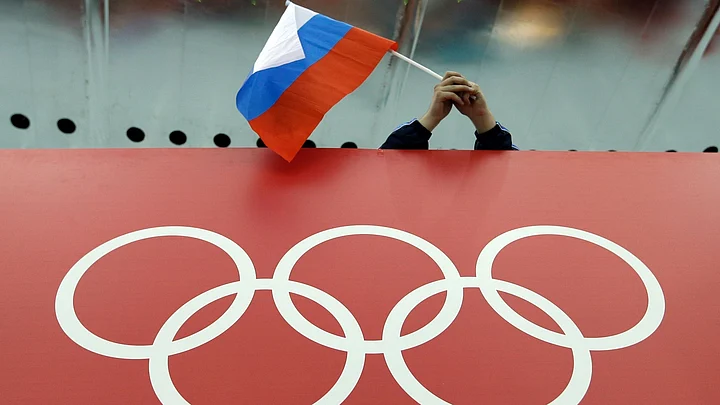The message the World Anti-Doping Agency sent Monday, in case everyone in the sports world hadn't already heard it: Russia can cheat and get away with it.
In fact, the Russians can pin up pictures of WADA's leaders on their bulletin boards, draw clown's noses on their faces, walk up to them and lie straight to their faces — and at worst, the WADA folks will throw part of the book at them, then check in to make sure they aren't mad.
Buried in a news release announcing a list of proposed sanctions for the Russians — a list that did not include a full ban of the country and its athletes from the Olympics — was a nugget that pierced WADA's already shaky credibility.
Under a sweetheart deal Russia brokered to be brought back into the Olympic fold, it had to provide unaltered data from its Moscow lab by Dec. 31, 2018. The data, in turn, was to be used to corroborate many of the doping cases from its wide-ranging scandal dating to the 2014 Olympics and before.
But, according to the news release, "someone in the Moscow laboratory," which was controlled by the Russian government, was still tampering with the data after it had made the agreement ... and after Dec. 31 ... and into January 2019, when the Russians finally handed over the data, two weeks past the deadline.
That "someone," the release says, was busy planting fabricated evidence in an attempt to implicate the lab's former director, Grigory Rodchenkov. The unidentified person claimed Rodchenkov, who blew the whistle on the Russian doping plot, did so as part of a scheme to extort money from athletes.
The mysterious "someone" was also deleting evidence that showed another lab staff member had been involved in the cover-up of the 2014-15 plot. That staff member is, according to WADA, a key Russian witness in several cases and someone who calls Rodchenkov a liar.
Again, all this happened after the leaders at WADA had cut this supposedly great deal, one that reinstated Russia's anti-doping agency and made Russia legit again. Getting the data, WADA claimed, was the most important thing, even if some other requirements for Russia's reinstatement had to be overlooked.
Eleven months later, WADA gets another pie in its face. It was being played.
Making Matters Worse
— Among the 380-plus pages in the report that WADA's executive committee will discuss on Dec. 9 is the blood-curdling assessment that tampering has "materially prejudiced the ability to pursue" as many as 145 cases. That's 145 cases involving athletes who may or may not still be competing. That's 145 reasons for clean athletes to wonder about any Russians who might be cleared for Tokyo.
— Also, some of the fabricated evidence has already been used to defend Russian athletes at the Court of Arbitration for Sport. In some countries, they'd call using false evidence like that a cut-and-dried case of perjury.
About those sanctions: They're harsh — Russia's flag and its government leaders would be verboten at the Olympics — but nowhere near as harsh as they might have been. That's because WADA does not call for a blanket ban of Russians from the Olympics.
Under this proposal, there could be a system similar to what was in place in 2018, when 168 athletes were vetted and approved to compete in Pyeongchang. They combined to win 17 medals, which might not go in Russia's win column but will certainly have a home in the country itself.
"The big picture is, if we don't do something that has the highest consequences for Russia, athletes will suffer forever," said Rob Koehler of Global Athlete. "In Russia, they'll be forced into programs they shouldn't have to be in. The more complicit (WADA) is in allowing them to compete, the less likely we are to seeing change in sport in Russia."
Would it be too harsh to preclude a new, supposedly clean generation of athletes from the Olympics for misdeeds from five years ago? Possibly.
That hasn't stopped track and field from considering it, however.
After uncovering a new batch of corruption last week, World Athletics said it would consider suspending the program that vets Russian athletes and allows them to compete in major events as neutrals.
That's how focused that sport is on getting to the bottom of the corruption in Russia.
But don't expect WADA, or the International Olympic Committee, which pays half of WADA's bills, to go to those lengths.
IOC president Thomas Bach was already on record as saying he was against a blanket ban, just as he has been from the beginning.
It seems Russia is just too important a cog in the Olympic world to be cast aside completely.
It seems the sanctions revealed Monday are about as bad as it will ever get for a country that cheats, gets caught cheating, cheats some more, and never needs to ask for forgiveness.
(This article has been published in an arrangement with AP.)
(At The Quint, we question everything. Play an active role in shaping our journalism by becoming a member today.)
